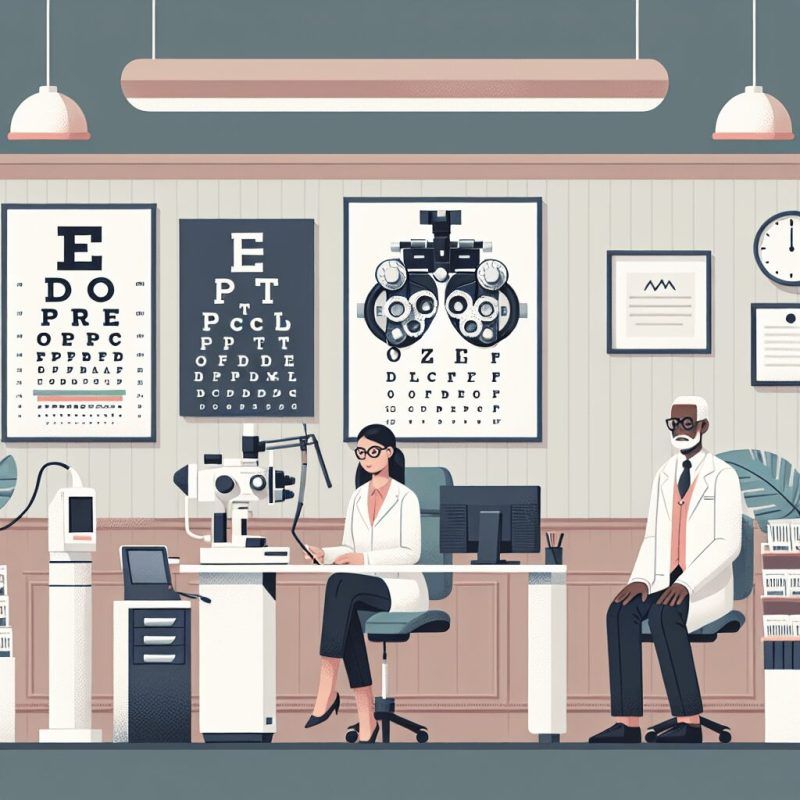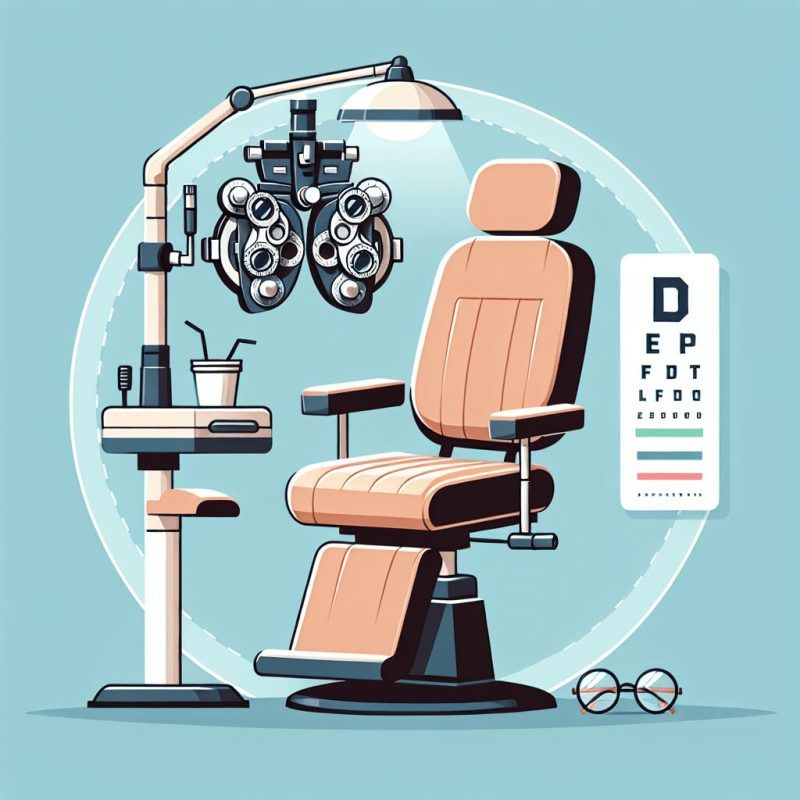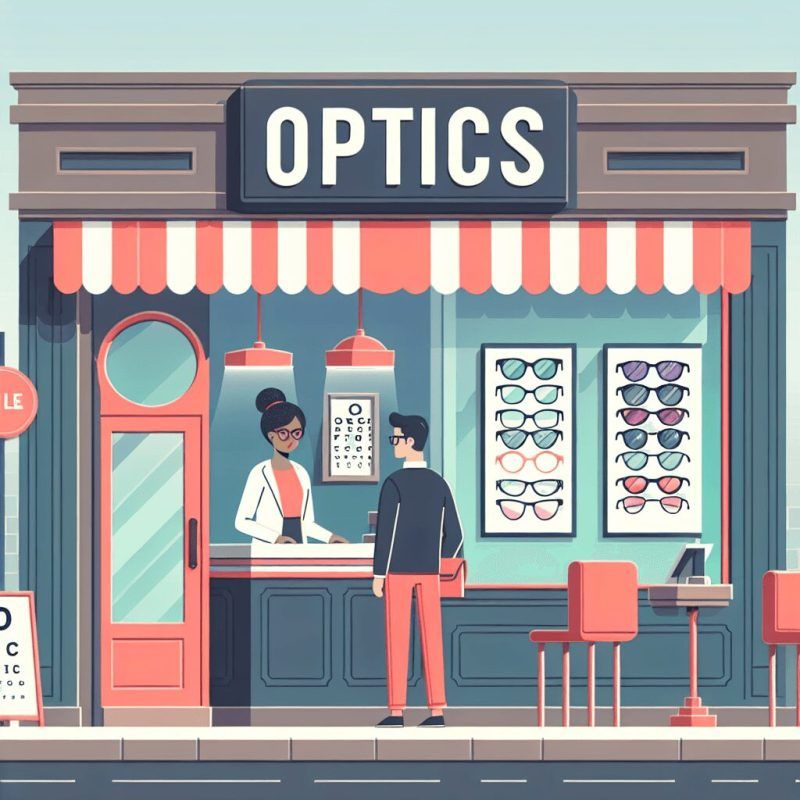Doctor's Corner
Eye Care Explained: What An Ophthalmologist Can Do That an Optometrist Can’t
Taking care of your eyes can be confusing with so many professionals out there. You may be familiar with ophthalmologists and optometrists, but do you know the difference? We’ll explain what each specialist can do and what makes them different. By the end, you’ll know who to turn to for your eye care needs.
Who Are the Different Eye Doctors?
Eye Care Pros: Ophthalmologist vs. Optometrist
Ophthalmologists and optometrists have different training and expertise. Ophthalmologists are medical doctors who specialize in eye care after completing full medical training and a 4 to 7-year residency in ophthalmology, focusing on surgical eye procedures. Optometrists, on the other hand, are healthcare professionals who provide primary eye care like routine eye exams and prescription refills, but they are not medical doctors and cannot do surgery.
When deciding whether to see an ophthalmologist or an optometrist, individuals should consider the nature of their eye condition or issue. Ophthalmologists are best for complex eye diseases and surgeries, while optometrists are more suitable for general eye care and prescription eyewear needs. Factors to consider include the specific services provided, the severity of the condition, and whether surgery is needed.
How to Decide: Ophthalmologist or Optometrist?
Both optometrists and ophthalmologists provide eye care services. Ophthalmologists are medical doctors who undergo extensive training, including a residency in ophthalmology, which can take an additional 4 to 7 years. They specialize in surgical eye procedures and handle complex eye conditions such as cataracts, glaucoma, and strabismus. Optometrists, on the other hand, are suitable for primary eye care.
Ophthalmologists earn a higher salary than optometrists, as reported in 2018, due to their advanced training and specialization in surgical intervention. When deciding whether to see an ophthalmologist or an optometrist, it’s important to consider the specific eye condition. Optometrists are best for routine care, while ophthalmologists are better suited for serious conditions or surgical procedures. Research is essential in finding the right eye doctor for your needs.
Eye Doctors and Their Training
What an Eye Doctor Does
Ophthalmologists and optometrists have different roles in eye care. Ophthalmologists are medical doctors who specialize in surgical procedures for eye diseases like cataracts, glaucoma, and strabismus. On the other hand, optometrists provide primary eye care and routine exams but don’t perform surgeries.
It’s important to understand these differences when seeking eye care. For routine exams and prescriptions, optometrists are a good choice. However, for medical consultations and surgeries like cataract removal, consulting an ophthalmologist is necessary.
Ophthalmologists undergo extensive training, including a full medical program and a 4 to 7-year residency in ophthalmology. This prepares them to perform surgical procedures for eye diseases, with hands-on experience in patient care. This thorough training makes them experts in their field.
Steps to Become an Eye Doctor
Before becoming an ophthalmologist, one must finish medical school, followed by a 4 to 7 year residency program. During this training, students learn about eye care and how to do surgeries under supervision. Ophthalmologists focus on treating eye diseases and doing surgeries like for cataracts and glaucoma. They also offer routine eye exams and other primary care services. The main difference between ophthalmologists and optometrists is the ability to do eye surgery.
Ophthalmologists can perform a wider range of surgical procedures. People interested in a career in eye care should consider the level of responsibility and years of extra training needed to be an ophthalmologist compared to the lower level of responsibility as an optometrist.
Finding Your Eye Care Expert
The Hunt for the Best Local Eye Doctor
When picking the right eye doctor , you should think about a few things for your eye health. Here are some important things to consider:
- Understand the difference between ophthalmologists, optometrists, and opticians.
- Check the eye care provider’s experience in treating specific eye conditions.
- Inquire about the range of services offered, such as routine eye exams, eyeglass prescriptions, and surgical procedures.
- Ensure the eye doctor is licensed and board-certified, has a good rapport, and provides a comfortable environment.
- Verify if the eye doctor accepts your health insurance plan and has convenient office hours for appointments.
These factors are important when choosing the best eye doctor for your eye health and vision needs.
What specific treatments can an ophthalmologist provide for astigmatism that an optometrist cannot?
When it comes to managing astigmatism, a woodlands eye doctor’s astigmatism guide may highlight specific treatments that only an ophthalmologist can provide. These may include specialized surgical options like LASIK or PRK, as well as more complex contact lens fittings for patients with irregular corneas.
See an Optician for Eyewear Help
Role of an Optician in Eye Care
An optician helps with eye care by filling eyewear prescriptions and fitting corrective lenses, like glasses and contact lenses.
They work closely with optometrists to make sure patients get the vision correction they need.
When someone needs eyewear help, like prescription glasses or contact lenses, visiting an optician is the best choice.
Opticians make sure patients get the right eyewear for their needs and handle appointment scheduling, payment, and insurance details.
They play a key role in making sure people have the right vision correction.
When to Visit an Optician
An optician can help with eyewear needs like fitting corrective lenses. If you experience visual discomfort, blurry vision, or headaches, it’s important to see an optician for an eye exam. Conditions such as astigmatism, nearsightedness, or farsightedness require precise eyewear prescriptions. Those needing eyewear for reading or driving should also consult an optician for the right lenses.
Opticians provide essential eyewear services to address visual impairments, contributing to overall eye health and wellbeing.
Choosing Right for Your Eye Health
Ophthalmologists are medical doctors who can perform surgical eye procedures and treat conditions like glaucoma, cataracts, and strabismus. Optometrists provide primary eye care but have limited capabilities for treatments and surgeries compared to ophthalmologists.
Deciding to see an ophthalmologist or optometrist depends on the type of eye issue. Optometrists are suitable for routine eye exams and prescription refills, while ophthalmologists are essential for complex issues requiring surgery or specialist care.
Opticians fill eyewear prescriptions, fit corrective lenses, and handle administrative duties like appointment scheduling and payment – they are not trained to see diagnose and understand your eye health. They work closely with optometrists and are experts in adjusting or maintaining eyewear.
Doctor's Corner





